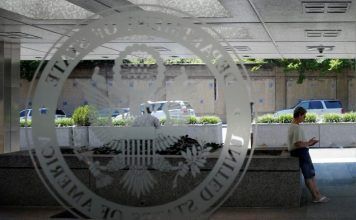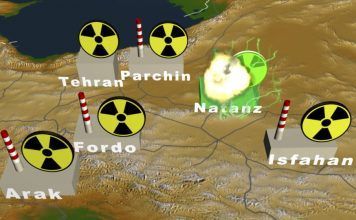Restrictions on Iran’s internet imposed by the country’s government have placed Iranians’ online rights and freedoms “in deep freeze,” Alp Toker, the founder of internet watchdog Netblocks said.
[aesop_image img=”https://kayhanlife.com/wp-content/uploads/2022/08/2022-02-23T000000Z_1615818189_MT1NURPHO0009T75JG_RTRMADP_3_IRAN-DAILY.jpg” panorama=”off” credit=”REUTERS/FILE PHOTO./” align=”center” lightbox=”on” captionsrc=”custom” caption=”An Iranian woman and a man speak on their phones while a woman using her smartphone to check her social media on a street-side in northern Tehran on February 23, 2022. ” captionposition=”left” revealfx=”off” overlay_revealfx=”off”]
Iran came in last in a global classification of countries ranked according to their granting of internet freedoms in 2021, according to an annual report by the Washington-based advocacy group Freedom House. The report identified the use of localized internet blackouts and growing restrictions on foreign social media sites and online platforms as evidence of Iranian authorities’ increased restrictions on civil liberties. A proposal by policymakers for a legal framework to tackle “fake news” and the execution of Ruhollah Zam — a journalist critical of the Iranian government — were included as further evidence of rights violations.
Iran’s Parliament to Debate Restricting Internet; International NGOs Protest
“Iran is essentially in deep freeze when it comes to internet rights and freedom, insofar as the country is almost in a state of continual internet disruption when it comes to international services and communication,” Toker told Kayhan Life. “It’s an active decision on the part of the government to isolate the country.”
Toker added that Iran’s government was able to impose shutdowns at speed using the kill switch model, which bypasses compliance from internet providers.
“Iran has mastered the centralization of sensitive infrastructure. This means that disruptions can be imposed very rapidly. Many countries haven’t yet reached this degree of sophistication when it comes to online censorship. It’s really the removal of that due process that makes the situation in Iran so alarming,” Toker said.
The comments follow a United Nations report published on Aug. 19 which held that internet shutdowns violated human rights. The document analyzed trends in shutdowns, their causes and the legal implications of their use.
The report noted that Iran was one of six countries with documented internet shutdowns during political elections, including: Chad, the Republic of the Congo, Niger, Uganda, and Zambia.
The UN said some internet shutdowns may have been authorized to deliberately conceal human rights violations. It also said shutdowns in Iran during violent crackdowns by officials of anti-government protestors had obstructed the flow of information about serious abuses.
Internet Blackouts Endanger Lives of Iranians, Says NetBlocks Founder
Despite research documenting a correlation between internet shutdowns in Iran and events like anti-government protests, identifying individuals responsible for the shutdowns remained difficult.
The UN report made three recommendations for states: to avoid the use of localized shutdowns and full internet blackouts; to authorize shutdowns solely on human rights grounds; and to provide the public with information about any decision to implement a shutdown ahead of time.
Internet Freedom in Iran Should Be Supported by the US Government, Lawmakers Say
The report also offered recommendations to civil societies in affected countries, including launching collaborative efforts to prevent and study shutdowns, and to promote access to tools which circumvent rights-breaching restrictions.
In conclusion, the UN document warned that even if shutdowns were prevented in the future, an emerging threat in the form of “targeted interferences, such as bans of certain platforms or channels, seem likely to expand.”
“In some circumstances, such bans may have impacts almost as extensive as a blanket shutdown, given the digital footprint of some platforms,” the UN said.
Toker said Iran was already experiencing this phenomenon.
“Nation scale disruptions haven’t been required, because there are already so many. One of them is protocol level filtering. This means that access to certain types of services are restricted regardless of who they are, particularly if they’re outside the country,” Toker said. “We also see the censorship of major international platforms, including most international social media. And beyond this, we also see the periodic disruption of local services. It’s the combination of these three factors that creates such a dire situation for communications in the country.”
Tools to bypass internet access restrictions have emerged, such as Elon Musk’s Starlink. The service uses low earth orbit satellites which connect people to the outside world. This can be done using TV satellite dishes, which are ubiquitous in Iran despite a government ban on the dishes. However the technology poses problems in Iran. It requires the set up of ground stations in the country, which the government will not allow.
Elon Musk Should Offer His Starlink Internet Service to Iran, Expert Says
Experts say newer initiatives such as community networks could offer a promising alternative. These networks are built and managed by communities, and offer an affordable way to enable internet access. Such networks can be run through mobile phones and other small devices and can allow people to send messages within a multiple kilometer range.







